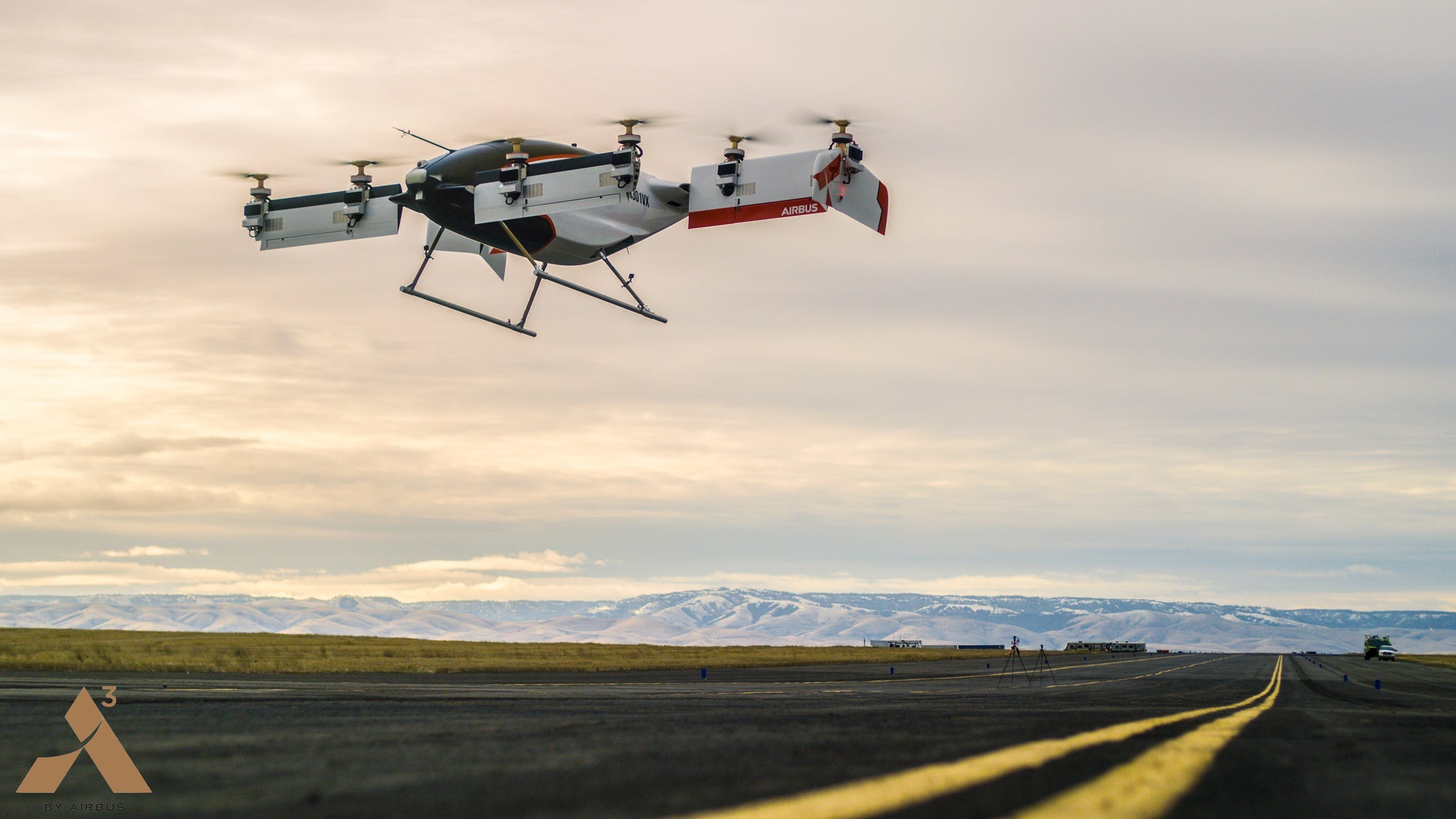Airbus' Flying Taxi Takes off for the First Time
Airbus announced a significant step in its flying taxi program. On Wednesday, its full-scale "flying car" Vahana took its first flight.
The Vahana completed two short flights over the last two days, said the company in a statement. The first saw it climb 16 feet and stay airborne for 53 seconds. It successfully completed a second flight on Thursday.
Similar to a helicopter, the Vahana is a VTOL, or vertical take off and landing, vehicle. The test flights occurred in Oregon at the Pendleton Unmanned Aerial Systems Range.
The aircraft resembles a remote control drone, although much bigger. It measures 20.3 feet long, 18.7 feet wide, 9.2 feet tall and features eight rotors. Similar to other flying car prototypes, the Vahana is powered by electricity. It can sit one person inside its black canopy.

The aircraft is "self-piloted," or autonomous, and this test flight was flown without a human in the vehicle.
Airbus hopes to use Vahana as a way to revolutionize urban travel.

"We anticipate speeds will be 2-4x faster than cars or traffic, and have a flight range of about 50 miles (80 km)," reads Vahana's website. And not just a way to shuttle individuals, the VTOL could act as a cargo delivery platform, ambulance, mobile hospital or limousine, says the company.
Vahana is a project of Airbus' Silicon Valley outpost, A3 (pronounced A-cubed). The vehicle was conceived, designed and a working prototype built in less than two years since A3 's founding.
"In just under two years, Vahana took a concept sketch on a napkin and built a full-scale, self-piloted aircraft that has successfully completed its first flight," said Zach Lovering, Vahana's project executive, in a statement.
With hovering now complete, the team will start testing transitions and forward flight. CNN reports that Vahana executives want to start selling the aircraft by 2020.
Other transportation companies like Uber and Bell Helicopters are working on their own VTOL taxi systems that could one day compete with Airbus' Vahana project.
TPG featured card
at Capital One's secure site
Terms & restrictions apply. See rates & fees.
| 5X miles | Earn 5X miles on hotels, vacation rentals and rental cars booked through Capital One Travel |
| 2X miles | Earn unlimited 2X miles on every purchase, every day |
Pros
- Stellar welcome offer of 75,000 miles after spending $4,000 on purchases in the first three months from account opening. Plus, a $250 Capital One Travel credit to use in your first cardholder year upon account opening.
- You'll earn 2 miles per dollar on every purchase, which means you won't have to worry about memorizing bonus categories
- Rewards are versatile and can be redeemed for a statement credit or transferred to Capital One’s transfer partners
Cons
- Highest bonus-earning categories only on travel booked via Capital One Travel
- LIMITED-TIME OFFER: Enjoy $250 to use on Capital One Travel in your first cardholder year, plus earn 75,000 bonus miles once you spend $4,000 on purchases within the first 3 months from account opening - that’s equal to $1,000 in travel
- Earn unlimited 2X miles on every purchase, every day
- Earn 5X miles on hotels, vacation rentals and rental cars booked through Capital One Travel
- Miles won't expire for the life of the account and there's no limit to how many you can earn
- Receive up to a $120 credit for Global Entry or TSA PreCheck®
- Use your miles to get reimbursed for any travel purchase—or redeem by booking a trip through Capital One Travel
- Enjoy a $50 experience credit and other premium benefits with every hotel and vacation rental booked from the Lifestyle Collection
- Transfer your miles to your choice of 15+ travel loyalty programs
- Top rated mobile app


